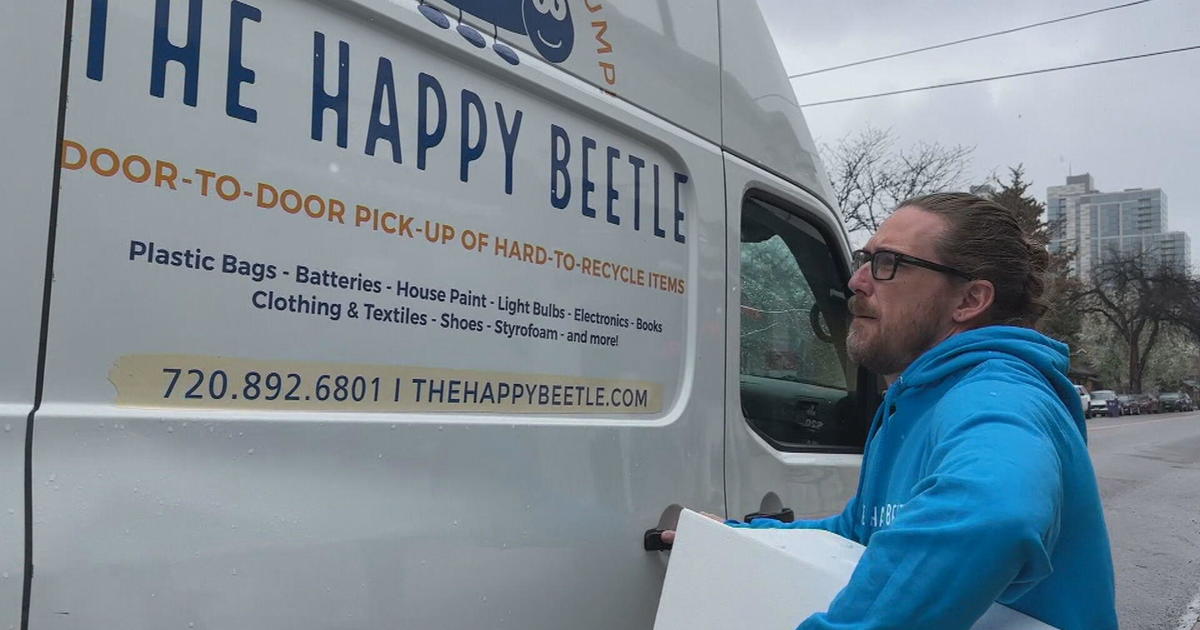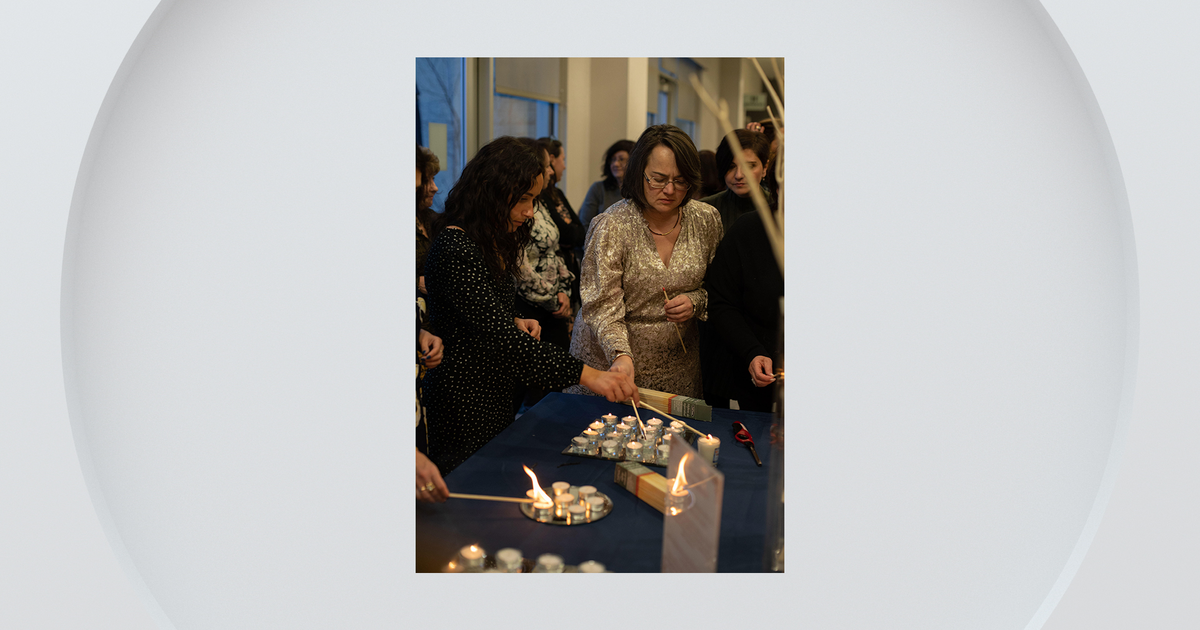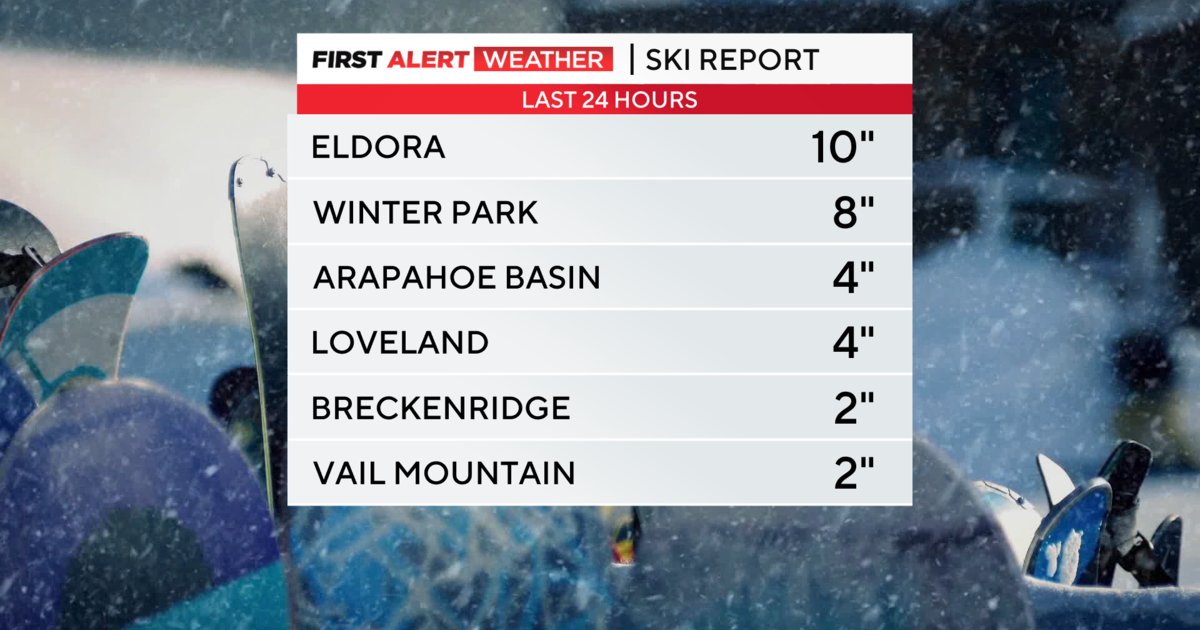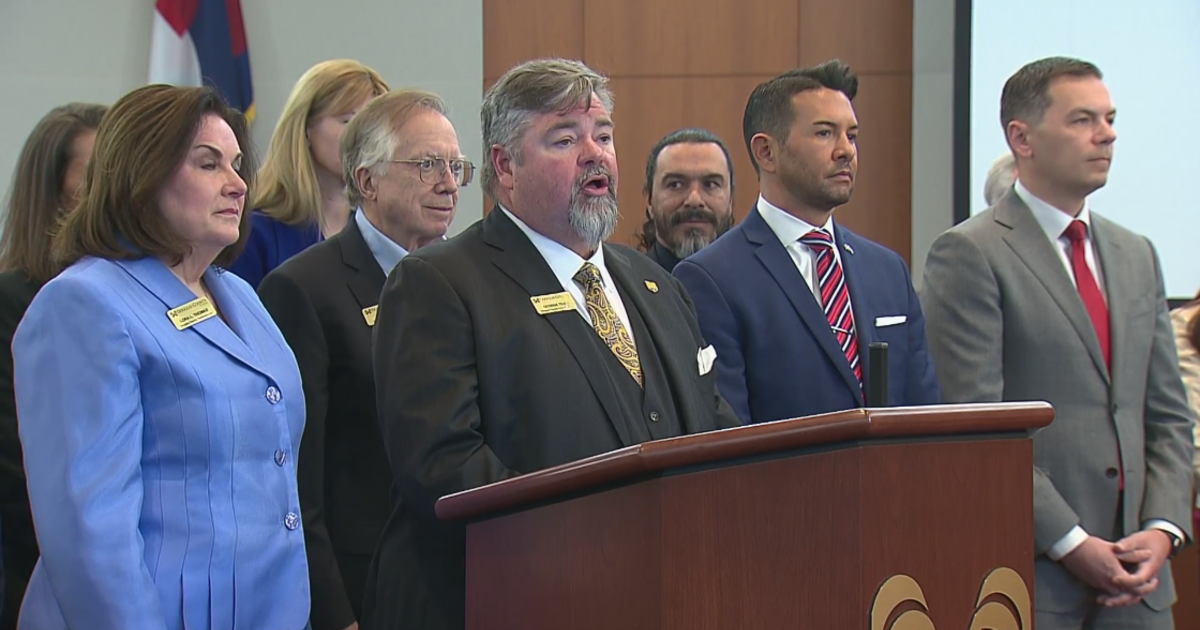High Line Canal Helps Mitigate Heat Island Conditions In Denver Metro Area
AURORA, Colo. (CBS4) - The High Line Canal Conservancy says community members and volunteers play a key role in their ability to connect with more residents across the Denver metro area so access increases to the trail. Helping neighborhoods along the canal with Black and Brown families realize the healthier lifestyle available to them is part of their ongoing mission to improve outreach to these marginalized communities.
"I can just hop on the canal whenever, anything I need, I need to get outside and breathe some fresh air," said Arelie Alcazar on Wednesday. "It's always safe."
A longtime resident in one of the Aurora neighborhoods near the canal, Alcazar uses it weekly to commute to work, run errands and catch up with her friends on a electric bike. She also serves as a volunteer, translating signs to help Spanish speakers access the canal. Her connection started when she was younger, participating in cleanup efforts along the trail. As she continues to find new ways to enjoy it, she wants to help others see the benefits too.
"This is where I see kids, this is where I see families," she told CBS4. "They may not understand the science, but they see the effects on their lives."
The canal has a long history of supporting families in Colorado, with its origins in irrigation. Stormwater infrastructure gives it new purpose supporting trees and vegetation along its path. Neighborhoods in Denver and Aurora along the canal can suffer the most from climate change effects even when they are contributing the least to its causes. In some of these communities nearby, the population is 40 percent Latino and 20 percent Black.
"Areas that are denser and more developed often experience more extreme heat than other areas that have more open space," said Joshua Phillips, the director of planning and implementation for the High Line Canal Conservancy. "They're experiencing the worst of the heat island affects, they have hotter temperatures in their neighborhoods."
Spanning 860 acres of open space, the canal can help to stop heat island conditions by absorbing that heat and creating cool areas with shade for neighborhoods. The canal also has trees requiring less water that can also improve air and water quality. Phillips says it is important to show communities of color that the canal is not just a source of recreation in their backyard but an environmental asset.
"Whenever I look at nature, I always see nature everywhere, and most people don't," said Dr. Violeta Garcia. "Our community members don't think that way often times so it would also be a great opportunity for a learning environment."
Dr. Garcia lives near the canal and works to help neighbors in Denver and Aurora appreciate what it can provide for their families. She says it is a source for families to grow their own food and could be a place to train future farmers. The diversity along the canal can help them target Black and Brown farmers who may have a background in that field but have not used those skills since settling into these neighborhoods. Senior citizen as well as immigrant and refugee communities all rely on the canal for different reasons, which is why she is working to create better access for residents in both cities.
"In order to enjoy the outdoors, you need to put a backpack on and go hiking and that's not true," Garcia said about the misconception around resources like the canal. "Our communities interact with nature and the outdoors differently."
As a Ph.D. in Biology, she is always trying to help others see the benefits of nature. Access to healthy food is one way she hopes to change that perception. Her work calls on more involvement from the community offering their time and money to help more people become skilled in ways to better their families along the canal.
"It's communities investing in themselves," said Alcazar. "The outdoors is for everybody."
She also wants to see more engagement from volunteers emphasizing they should come from those who live in nearby neighborhoods. Her hope is to see more people joining this effort and creating events at the canal. She wants to help those who have missed out on trail activities to see that they can improve their health while staying social with family and friends all at the same time.
"The environment and the needs of people do not need to be in conflict. They work best when each contributes."
LINK: highlinecanal.org



